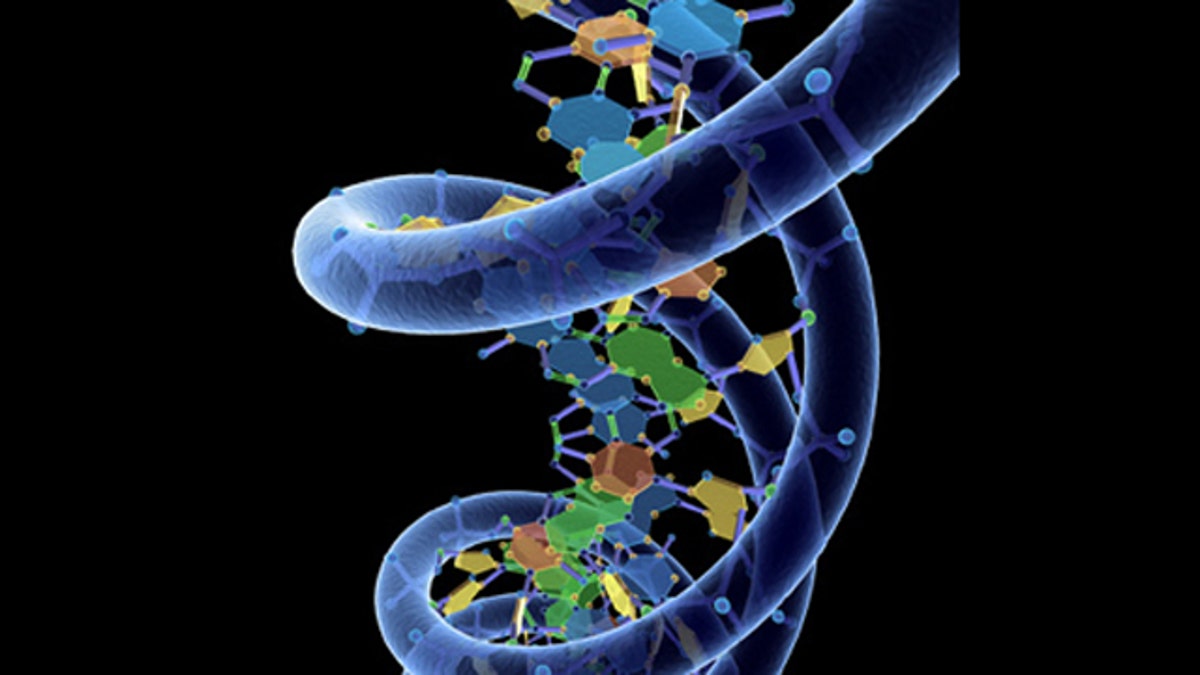
(3DScience.com)
You may be born with an expiration date. And there’s a way to figure it out – during your youth.
Researchers from the University of Glasgow in England have discovered an early predictor of lifespan in an individual’s DNA. The team took multiple blood samples of 99 zebra finches periodically over the course of their lives, which ranged from 210 days to almost nine years. Once all the finches had died, the team re-examined all of the blood samples.
They found that the best predictor of long life was in the DNA taken when the finches were just 25 days old.
“The study we did is different from other studies in that we were able to follow individuals from early in life until death,” professor Pat Monaghan, who led the research team told FoxNews.com. “In other studies like this, we’ve only been able to get info on survival over relatively short time periods or by researching individuals of different ages.”
The secret lies in the length of an individual’s telomeres – pieces of DNA located at the ends of chromosomes. Telomeres serve a similar purpose to plastic caps at the end of shoelaces, protecting the chromosome from losing information over the course of a person’s life.
“The study we did is different from other studies in that we were able to follow individuals from early in life until death."
“Each time a cell divides, some DNA can be lost at the end of the chromosome,” Monaghan said. “The cap is worn down without affecting the integrity of the chromosome itself. But each time a cell divides, some of this protective cap is lost. Eventually, it’s eroding or fraying away until no cap is left. Then genetic structure in the cell is lost, so that cell may die or malfunction.”
Once a cell is no longer able to divide or begins to deteriorate, it contributes to the decline in tissue and organ function. This increases the risk of cancer and other diseases as a person ages over time. But for individuals with longer telomeres in early life, their cells receive more protection over time.
“If the telomere is longer, there’s more to wear away,” Monaghan said.
A study of this magnitude would be difficult to conduct on humans, since it could be a whole century before the results could be analyzed. But the findings are still significant for humans. Dr. Brit Heidenger, one of the researchers under Monaghan, said the next step in their research is to understand why some individuals have longer telomeres than others.
“The interesting findings is that such an early stage in life, we have evidence that lifespan is predicted by telomere length,” Dr. Heidenger said. “Now we want to know how much is due to environmental factors or hereditary factors. We could look at what kind of parenting they receive or food they’re exposed to. If we find that environmental factors matter in terms of telomere length, it could have a very big impact.”
While the team is excited about the results of their research, Heidenger noted it is important for people not to think there is a ticking clock inside of them.
“We want to be cautious about how people interpret this,” Dr. Heidenger told FoxNews.com. “Although telomeres are a strong predictor, they are still just a predictor. It isn’t like we can look at telomere length and know exactly how long an individual will live.”
“It’s just letting you know the probability.”
The study was published Tuesday in the Proceedings of the National Academy of Sciences.
